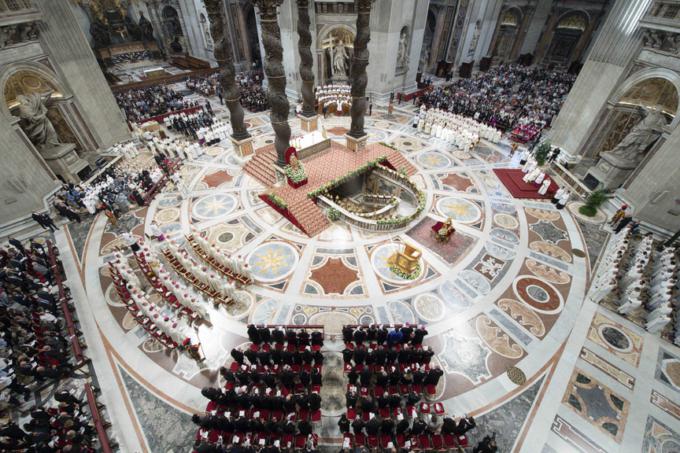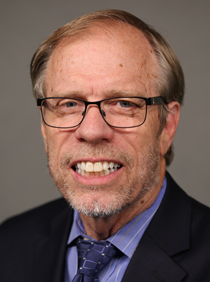
Culture
The tsunami of change that was the 1960s (and continuing decades) might have been far more shattering if the church had not created a vision of engagement and renewal.

Erlandson
Since most Catholics alive today have no lived memory of the Second Vatican Council, it remains surprising that it is -- at least for some -- still debated, defended, or despised with a passion one might wish reserved for more productive spiritual witness.
A variety of commentators of various stripes and even Pope Francis himself have weighed in to mark the council's 60th anniversary, including Ross Douthat, a Catholic columnist for The New York Times.
Douthat takes his characteristically bleak view of the church's contemporary state, opining that the council was (a) necessary, (b) a failure and © impossible to undo. Something there for every faction to choke on.
In assessing the council, it is difficult not to get caught up in the narratives that erupted simultaneously with the council itself.
Efforts to shape the agenda even before the council fathers gathered, efforts to interpret what they intended even as they met and efforts to debate what next to do when it ended: These narratives are all still evident in the debates we are having today.
Most Catholics, of course, are blissfully unaware of these debates, but they are still fought almost as passionately as during the first years after the council itself.
The Francis pontificate is increasingly being shaped by this fight, as some try to pit St. John Paul II or retired Pope Benedict XVI against Francis, with the council as the particular battlefield for waging a larger war.
How we remember or understand the past shapes much of what and how we debate now. I am distrustful of commentaries that tend to idealize the pre-Vatican II church.
In fact, the fissures in faith and practice were already visible, in Europe, but also in the United States. A perusal of Catholic journals from the mid-20th century will see columnists bemoaning declining religious fervor and practice, as well as increasing divorce and contraception rates.
Educated laity chafed at a heavily clericalized church, and lay guilds and movements were growing. Complaints about mediocre liturgies coincided with movements agitating for more use of English and other vernacular languages.
At the same time, two world wars, the Shoah, the rise of communism, the collapse of colonialism, an accelerating consumer culture -- all of these tectonic shifts impacted religious life and challenged the church's response.
To not have held the council was not an option, as Douthat understands. Whether the council failed is what much of the debate now seems to swirl about.
Yet people who look at the statistics of declining religious practice in the West as proof of a failed attempt at "aggiornamento" cannot tell us how bad that decline might have been if the church had done nothing.
The tsunami of change that was the 1960s (and continuing decades) might have been far more shattering if the church had not created a vision of engagement and renewal.
Both left and right have put their spins on the council and its aftermath. For Pope Francis, the council's purpose was unique and historic: "To rekindle her love for the Lord, the church, for the first time in her history, devoted a council to examining herself and reflecting on her nature and mission."
We can agree this task is not completed, and perhaps the debate that continues is the church wrestling with a fuller understanding of her nature and mission. Perhaps this debate is necessary, even if it is wearying and divisive.
If so, then no better prayer would be the prayer to the Holy Spirit uttered by the council fathers 60 years ago:
"We stand before You, Holy Spirit ... / Teach us the way we must go / And how we are to pursue it."
- Greg Erlandson is director and editor-in-chief of Catholic News Service.
Recent articles in the Culture & Events section
-
'Dignitas' and the mediaRussell Shaw
-
Scripture Reflection for April 14, 2024, Third Sunday of EasterDeacon Greg Kandra
-
St. Helena's House is established in the South EndThomas Lester
-
Is this synodality?Russell Shaw
-
Poking the hornet's nest of IVFFather Tadeusz Pacholczyk


















